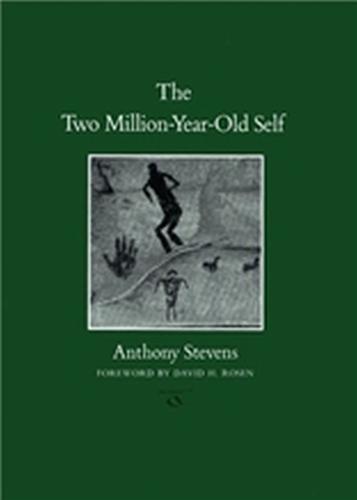Overview
With the evolution of human consciousness, nature has finally become conscious of itself. It has taken eons of time, this lumbering progress through the minds of reptiles, mammals, and primates, and it is still working out its purpose in the archetypes of the collective unconscious encoded in the most ancient parts of the human brain. The recent evolutionary history of our species, which Jung personified as """"the two million-year-old human being in us all,"""" is still active in our dreams, myths, psychiatric symptoms, traditional healing practices, and typical patterns of behavior. Through a wide-ranging review of developments in anthropology, ethology, sociobiology, neuroscience, psycholinguistics, and Jungian psychology, Anthony Stevens explores the nature of the two million-year-old self and examines ways in which the contemporary world both fulfills and frustrates its basic needs and intentions. Drawing on his experience as an analyst, Stevens evokes dreams and psychiatry to reveal a compelling and challenging view of the two million-year-old Self as embodying no less than the will of nature. By granting close attention to nature's mind, Stevens argues, we not only further personal wholeness but also help redress the gross imbalances of our culture, which are threatening the destruction of the earth. For the ecologically concerned, this book offers a dramatic new perspective on our future relations with our planet.
Full Product Details
Author: Anthony Stevens ,
David H. Rosen
Publisher: Texas A & M University Press
Imprint: Texas A & M University Press
Edition: New edition
Volume: No. 3
Dimensions:
Width: 14.00cm
, Height: 1.20cm
, Length: 21.60cm
Weight: 0.239kg
ISBN: 9781585444953
ISBN 10: 1585444952
Pages: 160
Publication Date: 09 August 2005
Audience:
College/higher education
,
Postgraduate, Research & Scholarly
Format: Paperback
Publisher's Status: Active
Availability: In Print

This item will be ordered in for you from one of our suppliers. Upon receipt, we will promptly dispatch it out to you. For in store availability, please contact us.
Reviews
. . . Dr Stevens explores how evolution is both a source of species specific social strategies and, at a subject level, of our passions, dreams, imaginations, creativity and needs. With exemplary clarity of exposition he shows how Jung's concept of archetype is the missing link between the evolved process and subjective experience. . . . There are few works that succeed in tracing these links successfully and yet remain accessible. Dr Stevens achieves both. . . . I recommend this as a deeply illuminating volume. --Paul Gilbert, author of Human Nature and Suffering --Paul Gilbert, author of Human Nature and Suffering
"""Anthony Stevens provides a clear, concise reading of the evolutionary perspetive in Jungian psychology. . .. Steven's is an intelligent and erudite voice.""--Journal of Analtyical Psychology --David Tacey ""Journal of Analytical Psychology"" (4/1/2010 12:00:00 AM) "". . . Dr Stevens explores how evolution is both a source of species specific social strategies and, at a subject level, of our passions, dreams, imaginations, creativity and needs. With exemplary clarity of exposition he shows how Jung's concept of archetype is the missing link between the evolved process and subjective experience. . . . There are few works that succeed in tracing these links successfully and yet remain accessible. Dr Stevens achieves both. . . . I recommend this as a deeply illuminating volume.""--Paul Gilbert, author of Human Nature and Suffering--Paul Gilbert, author of Human Nature and Suffering"
""Anthony Stevens provides a clear, concise reading of the evolutionary perspetive in Jungian psychology. . .. Steven's is an intelligent and erudite voice.""--Journal of Analtyical Psychology --David Tacey ""Journal of Analytical Psychology"" (4/1/2010 12:00:00 AM) "". . . Dr Stevens explores how evolution is both a source of species specific social strategies and, at a subject level, of our passions, dreams, imaginations, creativity and needs. With exemplary clarity of exposition he shows how Jung's concept of archetype is the missing link between the evolved process and subjective experience. . . . There are few works that succeed in tracing these links successfully and yet remain accessible. Dr Stevens achieves both. . . . I recommend this as a deeply illuminating volume.""--Paul Gilbert, author of Human Nature and Suffering--Paul Gilbert, author of Human Nature and Suffering
Anthony Stevens provides a clear, concise reading of the evolutionary perspetive in Jungian psychology. . .. Steven''s is an intelligent and erudite voice. -- Journal of Analtyical Psychology <br><br>--David Tacey Journal of Analytical Psychology (04/01/2010)
Author Information
ANTHONY STEVENS is an internationally known Jungian analyst and writer from England. He holds a doctorate in medicine from Oxford and is a member of the Royal College of Psychiatrists.




